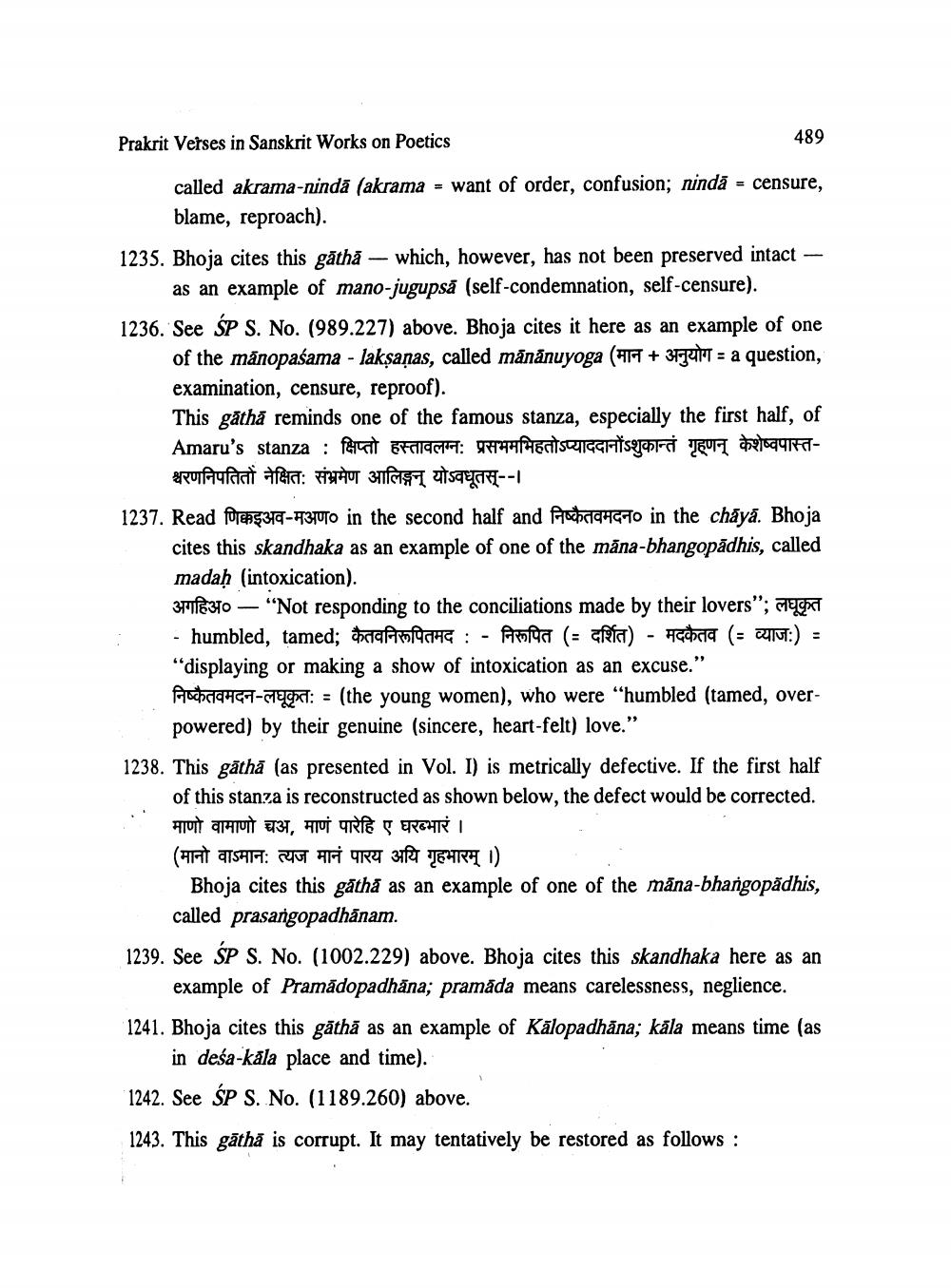________________
Prakrit Verses in Sanskrit Works on Poetics
489
called akrama-nindā (akrama = want of order, confusion; ninda = censure, blame, reproach).
1235. Bhoja cites this gātha - which, however, has not been preserved intact -
as an example of mano-jugupsă (self-condemnation, self-censure). 1236. See ŚP S. No. (989.227) above. Bhoja cites it here as an example of one
of the manopaśama - laksanas, called mānānuyoga (HFT + 3 JUTT = a question, examination, censure, reproof). This gātha reminds one of the famous stanza, especially the first half, of Amaru's stanza : fecant : H ATSWIGGritori TEUTT 09/04aश्वरणनिपतितो नेक्षित: संभ्रमेण आलिङ्गन योऽवधूतस्--
1237. Read णिक्कइअव-मअण in the second half and निष्कैतवमदनo in the chaya. Bhoja
cites this skandhaka as an example of one of the māna-bhangopādhis, called madaḥ (intoxication). 37370 - "Not responding to the conciliations made by their lovers"; magad - humbled, tamed; rafmaH : - Aroa (= apa) - Honda (= :) = "displaying or making a show of intoxication as an excuse." Auhau-caha: = (the young women), who were “humbled (tamed, overpowered) by their genuine (sincere, heart-felt) love."
1238. This gātha (as presented in Vol. I) is metrically defective. If the first half
of this stanza is reconstructed as shown below, the defect would be corrected. माणो वामाणो चअ, माणं पारेहि ए घरभारं । (मानो वाऽमान: त्यज मानं पारय अयि गृहभारम् ।)
Bhoja cites this gātha as an example of one of the mana-bhangopädhis,
called prasangopadhānam. 1239. See ŚP S. No. (1002.229) above. Bhoja cites this skandhaka here as an
example of Pramādopadhāna; pramada means carelessness, neglience. 1241. Bhoja cites this gāthā as an example of Kālopadhāna; kāla means time (as
in deśa-kala place and time). '1242. See ŚP S. No. (1189.260) above. 1243. This gātha is corrupt. It may tentatively be restored as follows:




